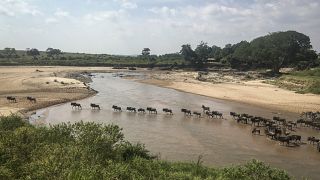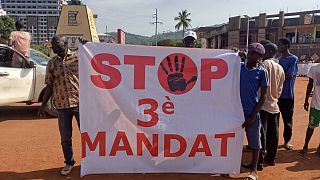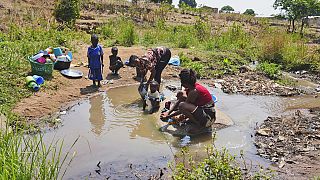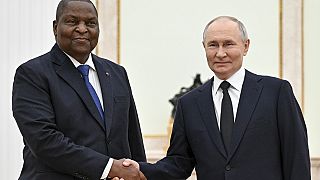Central African Republic
The seasonal migration of cattle is a long-standing practice in the Central African Republic (CAR), as herders search for water and pasture.
Things have generally been peaceful along so-called transhumance corridors, but pressures, including climate change, have increased tensions between herders and farmers.
As pressure mounts on resources like water and farmland, there have been incidents when herds cross and damage unharvested fields, or farmers sow their crops on designated transhumance corridors.
“My herd devastated a plantation. The owner came to ask me for damages and we were able to resolve the issue amicably. I paid the amount he asked me,” said cattle herder, Mohammet Abakar.
He said he wants to avoid conflict, but not everyone shares his view, with one farmer saying that some herders refuse to pay for crops their cattle have destroyed.
“I caught the oxen committing this act. But the herder asked me to wish his cattle ‘bon appetit’. He then asked me to leave and threatened to kill me with his bow if I insisted. This is how I lost my field,” said farmer Sidonie Tontiyo.
“No herder has ever been imprisoned because of our ravaged crops. Agricultural products are consumed by both farmers and ranchers. I hope the government will ensure that herds stay away from our plantations,” he said.
Earlier this week, the UN mission in the CAR (MINUSCA) together with partners, held a conference in the capital, Bangui, in a bid to find ways to reduce the insecurity and violence associated with the migration.
It brought together representatives of all national and regional actors involved in transhumance activity, non-governmental organisations, as well as technical and financial partners.
Delegates drew up a series of recommendations, which should serve as the basis for a roadmap to establishing a sustainable solution to the ongoing problems between the two communities.











Go to video
84% of world's coral reefs affected by worst coral bleaching event in history
01:06
UN warns of deepening Haiti crisis
01:40
‘The Herds’ puppets highlight climate change in Lagos
Go to video
South African orphanage rehabilitates injured predator birds
00:53
Brazil eyes global food leadership amid U.S.-China trade tensions
Go to video
Libyan leaders call for an inclusive political process